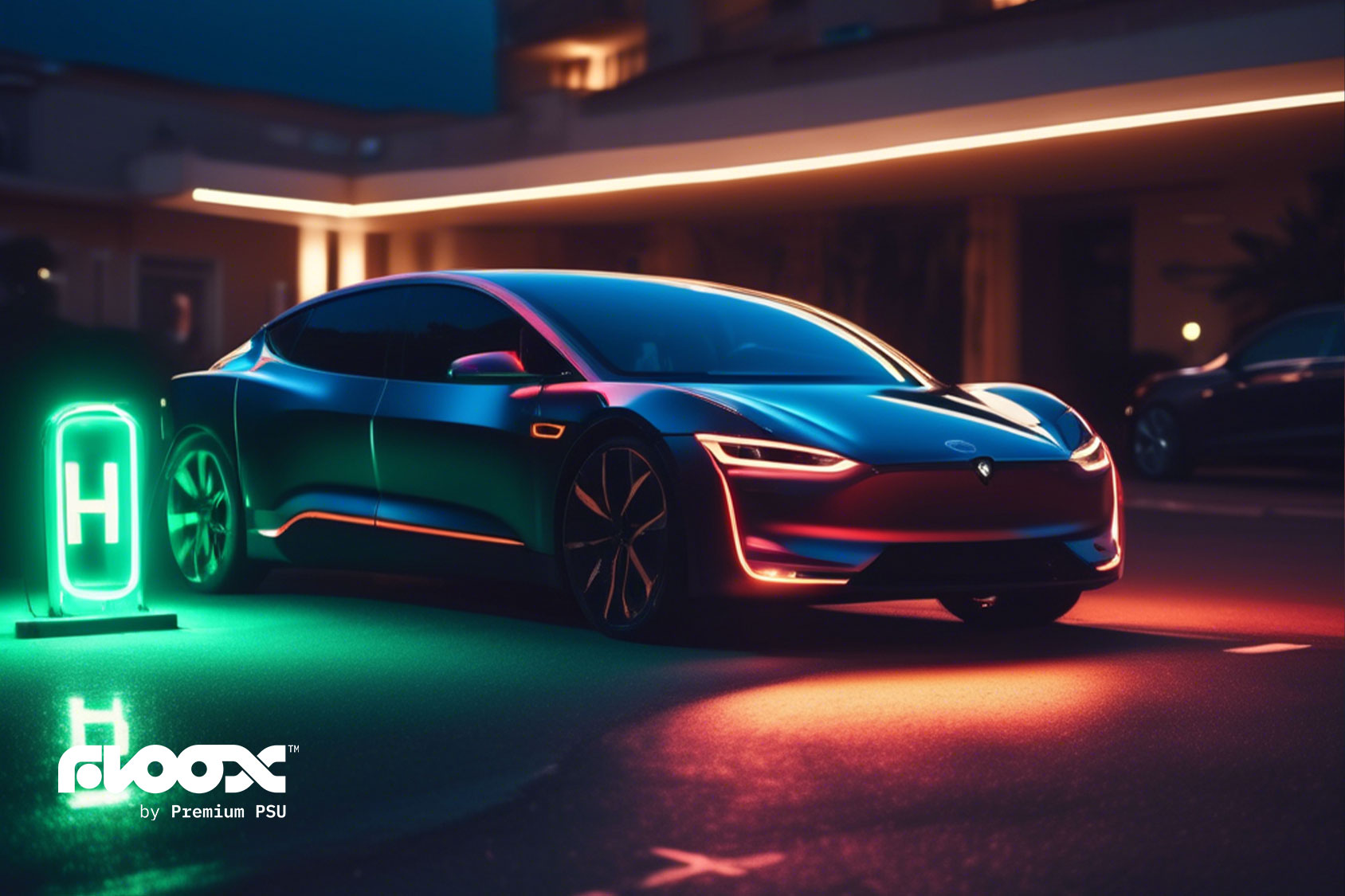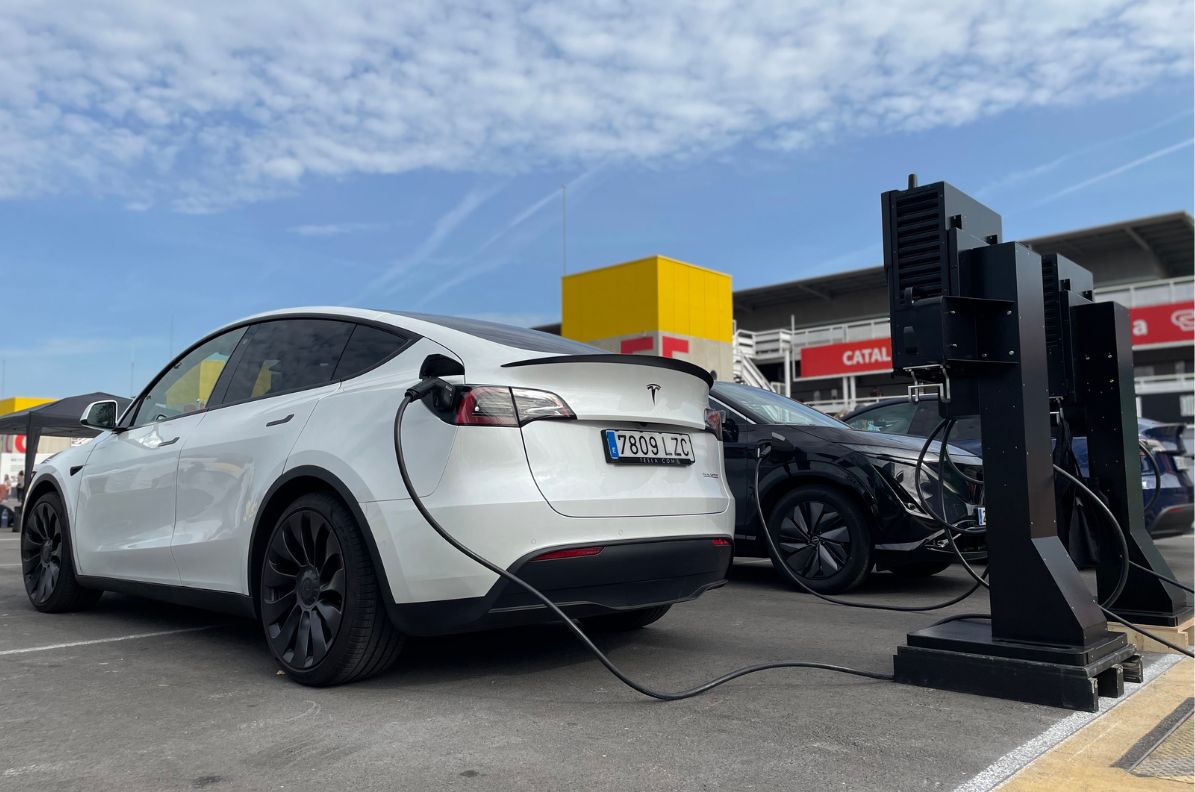
The popularity of electric vehicles continues to grow, with many owners and businesses wondering how much power is needed to charge electric vehicles. How much power is needed to charge an electric vehicle? The answer depends on several factors, such as battery capacity, desired charging speed and available infrastructure.
What is electrical power?
Electrical power is the amount of energy consumed or generated in an electrical circuit per unit in a given period of time. It is measured in watts (W) and represents the rate at which electrical energy is used. It is calculated by multiplying the electric current by the potential difference or voltage between the points in the circuit.
Why you should choose the right power for an electric charger
In the case of electric vehicle chargers, electrical power is crucial for optimal operation. This is because the charging speed of the vehicle is directly related to the electrical power of the charger. The higher the power, the faster the vehicle will charge.
In addition, adequate power is necessary to avoid overloading or overheating problems in the electrical system. If a charger with too high a power rating is used in an electrical system that cannot withstand it, it could cause overloading and damage the connected electrical devices.
In terms of charging times, the relationship between power and charging times is inversely proportional. This means that the higher the power, the shorter the charging time needed to fill the vehicle’s battery.
For example, a 7 kW charger can charge a vehicle in approximately 8 hours, while a 30 kW charger, such as the Powerfloox, can do so in less than one and a half hours. However, it should be noted that the charging speed also depends on the capacity of the vehicle’s battery and its previous state of charge.
Know the electrical power required for each charger
The power required to install an electric charger in a business depends mainly on the type of charger to be installed. The type of charger to be installed will depend on the charging needs of the electric vehicles to be serviced in the business, as well as the time available for charging.
If a business wants to offer fast, super-fast or ultra-fast charging services, the power required will be high, as these chargers need a larger amount of energy to be able to charge the vehicle battery in a shorter time.
It is important to note that the electrical power available to the business may also limit the type of charger that can be installed. If the electrical installation of the business is not capable of supporting the power required by a fast or superfast charger, then a request for a power modification to the electrical installation will be necessary in order to be able to install this type of charger.

Most common types of electric vehicle chargers
- Normal charging: This type of charger is currently the most common and can be found, for example, in the 220 V household socket. Its power output ranges from 1.4 kW to 3.7 kW, which means that it can take between 8 and 24 hours to fully charge the battery of an electric vehicle, depending on its capacity.
- Fast charging: This type of charger provides a higher charging power than normal charging, usually between 7 kW and 30 kW. It can be installed in public spaces or businesses where the user is going to spend a certain amount of time, because they allow the electric vehicle battery to be charged in a shorter period of time than normal charging.
- Super fast charging: This type of charger, as the name suggests, provides even more power than fast charging, typically between 50 kW and 150 kW. They can thus charge an electric vehicle battery in a short period of time, from 30 to 60 minutes.
- Ultra-fast charging: This is the most powerful type of charger available today, with a power rating of 350 kW or more. These chargers are found in high-speed charging stations, and allow an electric vehicle battery to be charged in just a few minutes.
In summary, the amount of power required depends on the type of charger being used, being higher for faster and more powerful chargers.
The advantages of fast charging electric vehicles
Fast charging chargers for electric vehicles offer several benefits, including reduced waiting time, maximum assured power for each vehicle and improved business performance in terms of the service offered.
Floox chargers offer very low charging times, even on the simplest models, allowing customers and visitors to go to shops and do shopping or other activities while charging their vehicle. In addition, the power of Floox chargers can reach up to 180 kW of direct current.
The installation of fast chargers can benefit different businesses, from public and private car parks to shopping centres, hotels, restaurants, workshops or gyms. Simultaneous charging allows up to three different cars to be charged depending on the charger model.
Floox charging systems are equipped with various safety and recognition measures that protect both the electrical network and the vehicle circuits, ensuring the reduction of incidents and improving overall safety.
- Powerfloox, with 30 kW charging power and CHAdeMO and CCS2 connectors, is a suitable option for businesses that allow customers to stay for around an hour or more, such as restaurants, gyms, car parks or shopping centres.
- Superfloox, on the other hand, has a charging capacity of 60 kW and can charge up to three cars simultaneously, with two high-capacity DC connectors and an optional third AC connector up to 22 kW. It is ideal for charging stations, dealers or transport fleets and PoR operators.
- Ultrafloox is the most advanced model and allows the simultaneous charging of two vehicles, adapting to power ratings of 90, 120, 150 or 180 kW of direct current. This model is an excellent choice for service stations, dealers, transport fleets and PoR operators requiring ultra-fast charging, as vehicles can reach 80% of their full battery capacity in just 15 minutes.
Ultimately, the power required to charge electric vehicles depends on many factors. It is important for businesses to know their charging needs in order to know what power they need. If you would like to know more about our charging solutions, please do not hesitate to contact us. We will be happy to help you.




